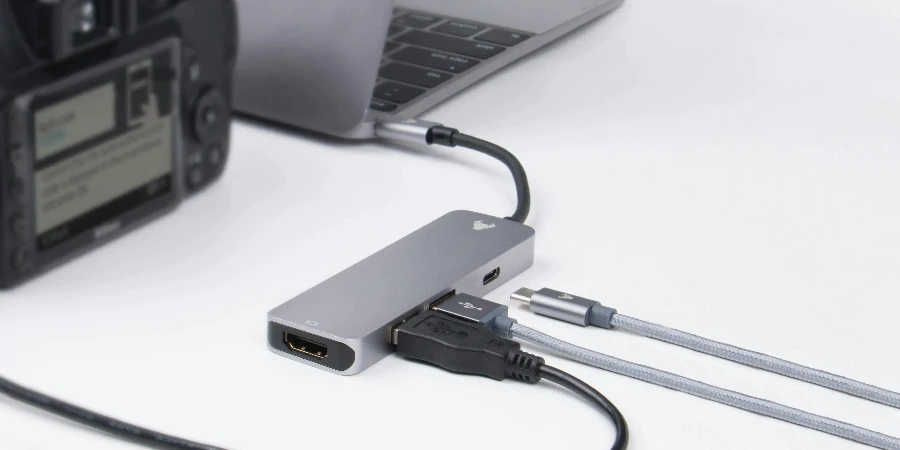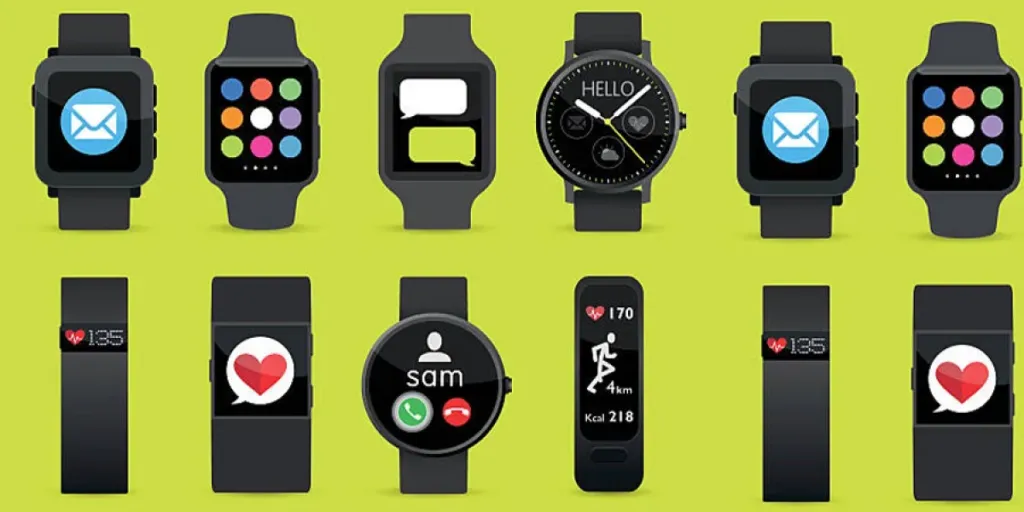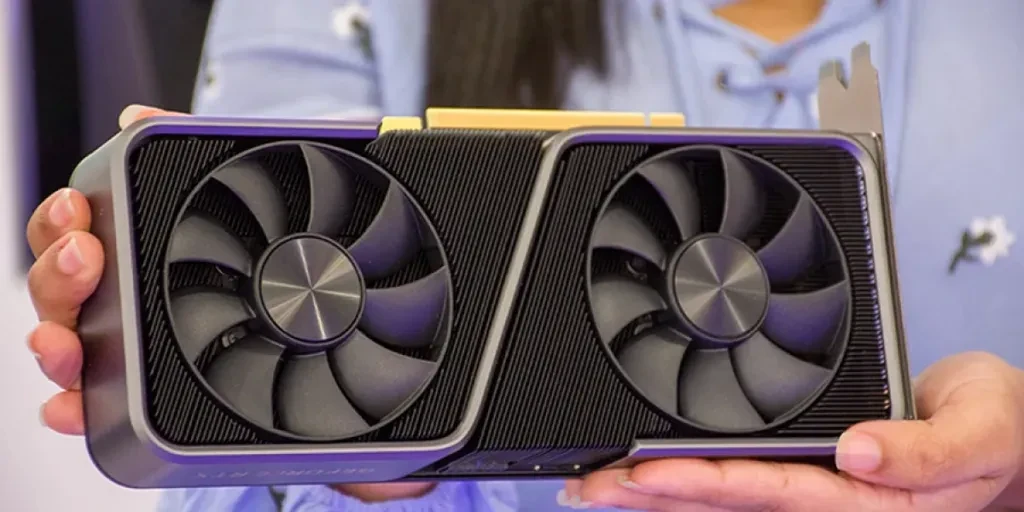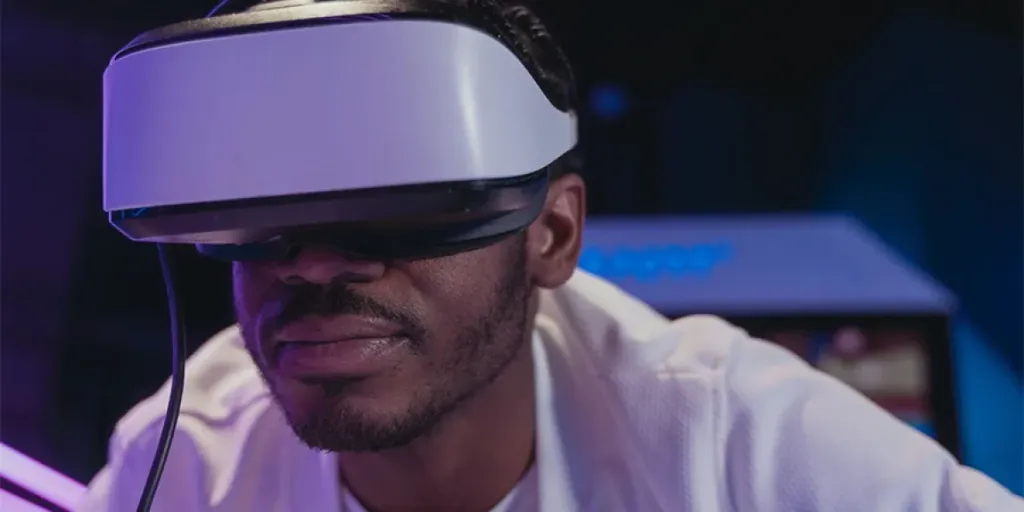The demand for Type C laptop chargers is heating up as USB-C technology becomes the standard across devices. This article delves into the market’s progression, highlights leading players, and examines the technological strides poised to influence the future of USB-C solutions.
Table of Contents:
– Market Overview of Type C Laptop Chargers
– Key Players in the Type C Laptop Chargers Market
– Technological Advancements in USB-C Charging Cables
– Consumer Demand and Preferences
– Regional Analysis of the Type C Laptop Chargers Market
– Future Trends and Predictions
– Conclusion
Market Overview of Type C Laptop Chargers
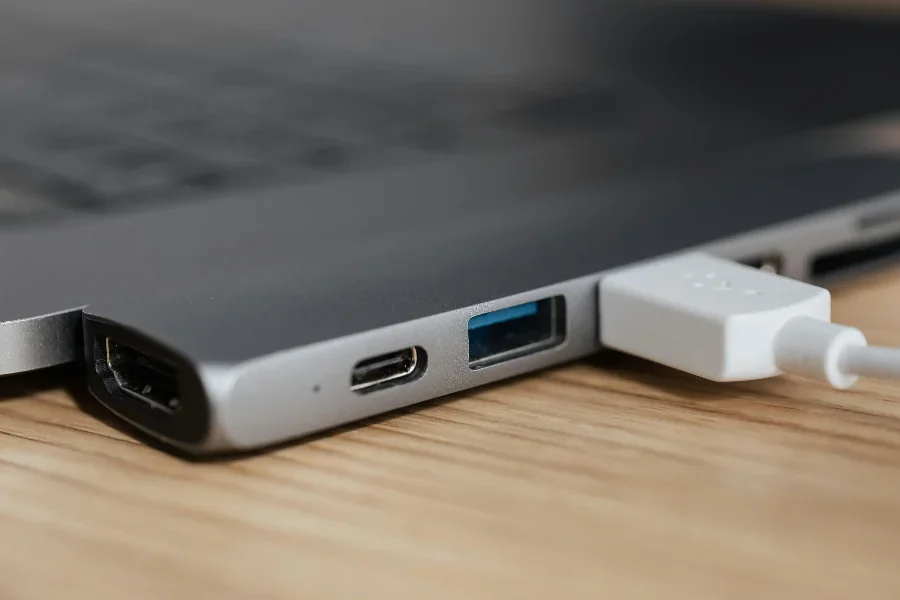
The rapid expansion of the Type C laptop chargers market is largely attributed to the increasing presence of USB-C technology in a wide array of electronic devices. By 2023, this market has been valued at approximately $2.97 billion, with predictions suggesting a striking growth rate of about 18.25% per annum, pushing the market value to an estimated $6.86 billion by 2028. This growth trajectory is fueled by a trifecta of demand factors: improved data transfer speeds, enhanced power delivery, and the broad compatibility of USB-C connectors.
Segment-wise, the Thunderbolt protocol is forecasted to be a frontrunner, expecting a growth surge at a compound annual rate of 23.46% from 2023 through 2028. Similarly, the personal computers and laptops category is anticipated to see a robust increase, with a growth rate pegged at 20.27% during the same period. North America commands the largest market share of 32.82%, representing $974.81 million as of 2023, a testament to its technological adoption pace.
The acceleration in this market is not just about numbers. It reflects a paradigm shift towards efficient and eco-friendly charging solutions, as the industry’s ecosystems mature in response to technological and environmental stimuli.
Key Players in the Type C Laptop Chargers Market
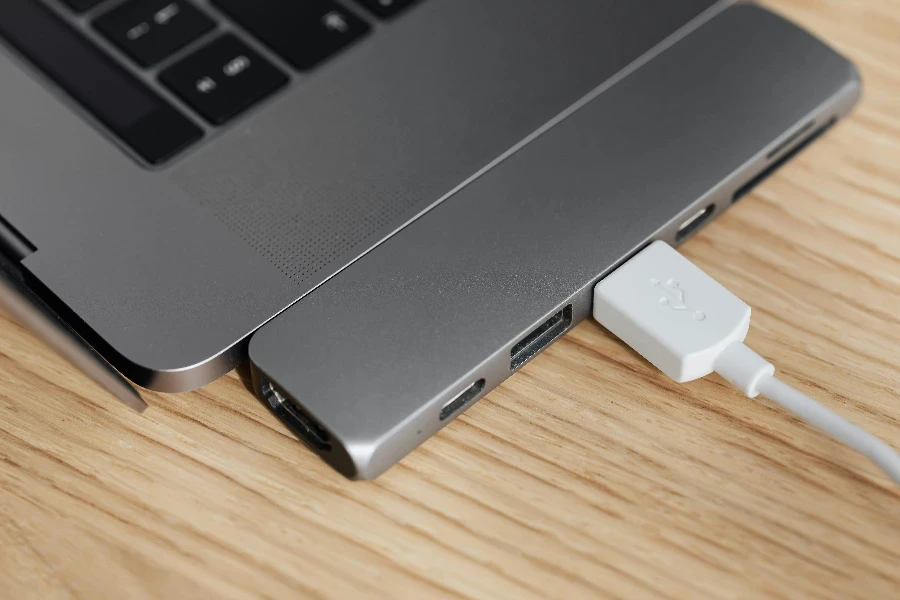
Leaders in the Type C laptop chargers market include notable entities like Anker Technology Ltd., Belkin International Inc., and UGREEN, each carving a considerable niche through strategic innovations and collaborative efforts. Known for its dependable and high-quality charging products, Anker Technology Ltd. has established itself as a trusted entity in this space. Belkin International Inc. also holds a commendable market share of 1.26%, primarily due to its advanced USB-C charging cables and adapters.
In addition to these giants, other influential players, such as AUKEY, Apple Inc., Amazon.com, Inc. (AmazonBasics), and Samsung Electronics Co. Ltd., are making strategic R&D investments to launch new offerings that cater to the ever-evolving consumer demands. A particular highlight within this competitive landscape is the development of bio-based USB-C cables, a nod towards sustainable innovation, and the increasing popularity of fast-charging USB-C options signifies a shift towards efficiency-driven consumer preferences.
Such a competitive market has well-and-truly set the stage for these companies to continue pushing the envelope in terms of product innovation and environmental responsibility.
Technological Advancements in USB-C Charging Cables
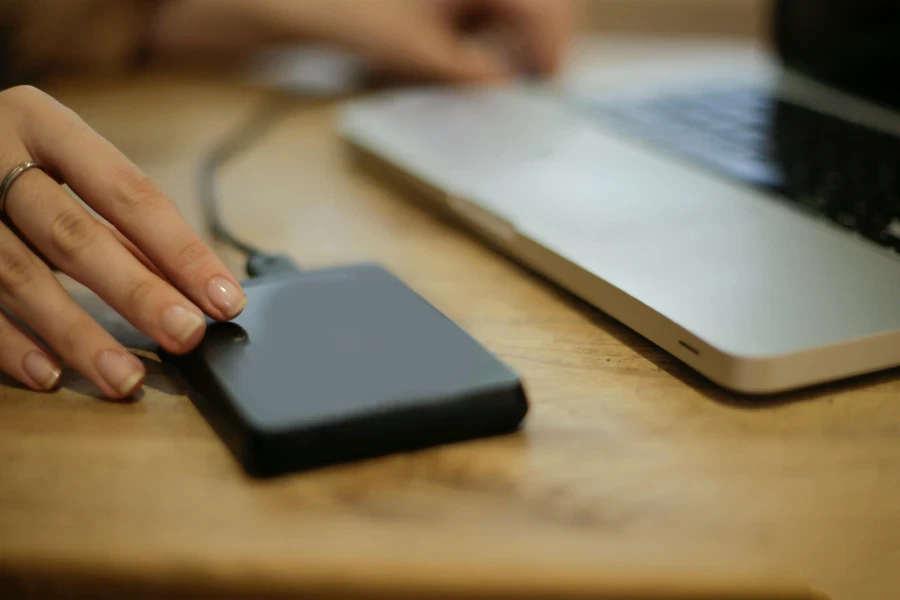
Innovation plays a quintessential role in amplifying the progression of the Type C laptop chargers market. Today, USB-C chargers encompass not just power delivery but also enhanced data transfer capabilities. Within this framework, USB 3.2 stands out as a burgeoning segment, poised to grow by a compound annual growth rate of 24.14% from 2023 to 2028.
Fast-charging solutions top the list of consumer demands, evidenced by the rise of USB-C cables specifically engineered to fulfill this preference. Delivering power at record efficiency, these cables align well with the fast-paced lifestyle of modern consumer electronics users. Additionally, USB-C charging cables now support an array of protocols—DisplayPort, HDMI, and Thunderbolt among them—showcasing their versatility in connecting a host of devices under a single standard.
As technology continues to evolve, these advancements herald a future where USB-C chargers not only meet basic charging needs but also cater to a broad array of device interfaces, all while improving power efficiency.
Consumer Demand and Preferences
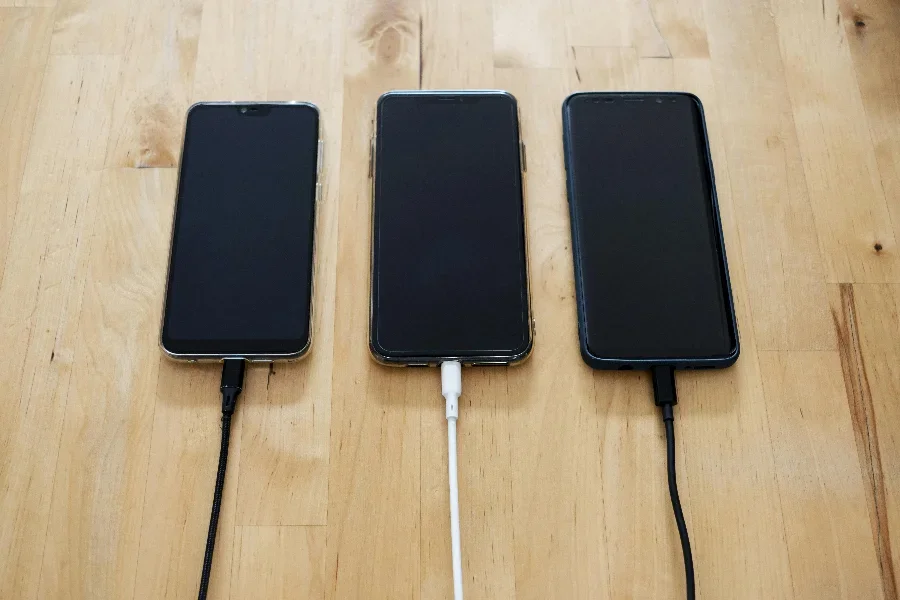
The surge in consumer interest in Type C laptop chargers can be attributed to several influential factors, including faster charging times, universal compatibility, and long-term durability. In 2023, the consumer electronics segment accounted for 50.01% of the market, amounting to approximately $1.48 billion, positioning itself as the largest mainstay segment. Following closely, the telecommunications segment is forecasted to register the swiftest growth, with a compound annual growth rate of 22.57% from 2023 onwards.
There’s a noticeable shift towards eco-conscious consumerism, prompting the introduction of bio-based USB-C charging cables, pushing manufacturers to prioritize sustainability in their product lines. The growing preference for durable, long-lasting cables has catalyzed the adoption of enhanced construction features including braided cable designs and reinforced connectors, refining both aesthetic and practical aspects of these items.
These evolving preferences underscore an increasingly knowledgeable consumer base that demands high-performance, aesthetically pleasing, and environmentally responsible solutions from manufacturers.
Regional Analysis of the Type C Laptop Chargers Market
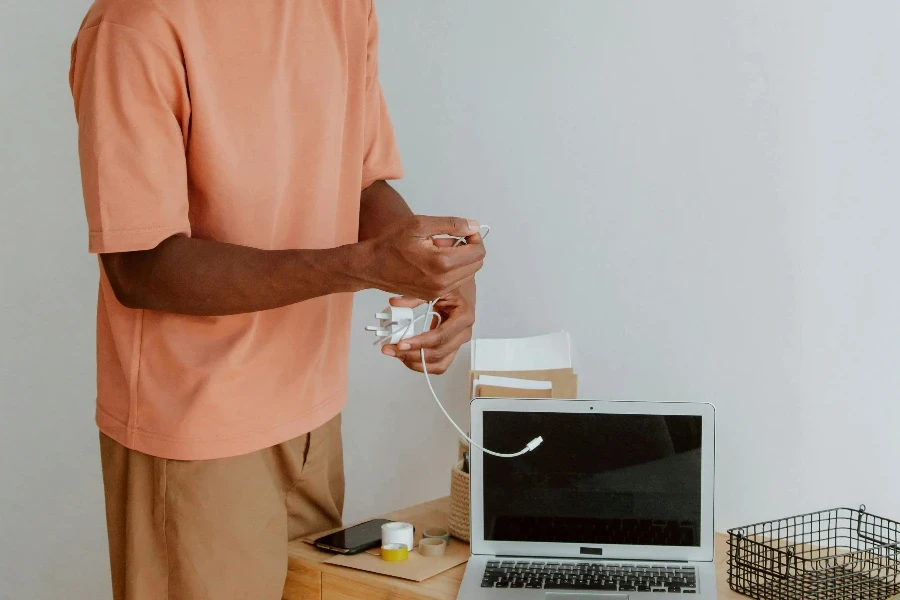
Globally, the Type C laptop chargers market is segmented into several key regions: North America, Asia-Pacific, Western Europe, Eastern Europe, South America, the Middle East, and Africa. Dominating the global landscape, North America maintains the largest stake in the market, closely followed by Asia-Pacific, which is anticipated to grow at the fastest compound rate of 19.64% throughout the projection timeline.
The growth momentum in Asia-Pacific is commonly attributed to the swift adoption of USB-C technology across countries such as China, India, and Japan. Furthermore, this region’s burgeoning electronics market alongside its pool of key manufacturers contributes significantly to its accelerating market share. Meanwhile, the Middle East and Africa are adjusting rapidly, each anticipated to grow at approximate annual rates of 18.56% and 18.90%, propelled by rising appetites for advanced charging solutions and the region’s increasing internet speeds.
These regional dynamics frame a broad spectrum of opportunities and challenges confronting businesses trying to navigate diverse consumer landscapes and technological frameworks.
Future Trends and Predictions
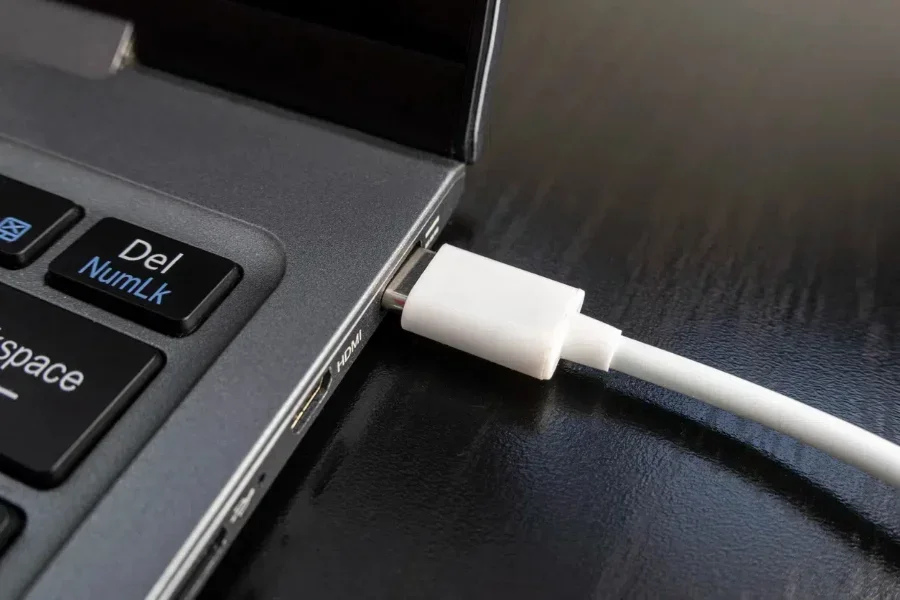
The trajectory of the Type C laptop chargers market presents a promising outlook as several trends are positioned to steer future developments. A critical trend involves the widespread proliferation of USB-C-adopting devices. As an increasing number of electronic devices, including consumer staples like smartphones, tablets, and laptops, incorporate USB-C ports, the demand for corresponding chargers will elevate significantly.
Embedded AI technologies stand as a major turning point, with AI-driven USB-C chargers emerging to fine-tune charging efficiencies and prolong device battery life, providing enriched user experiences. Another headlining trend gravitates towards sustainability, steering manufacturers towards green solutions, such as bio-based charging cables.
The focus for manufacturers, besides improving power delivery capabilities, will centrally lie on enhancing broader device compatibility through USB-C frameworks, thereby heightening the global consumer appeal of this charging format.
Conclusion:
The Type C laptop charger is a game-changer in the world of electronics, offering a versatile, powerful, and convenient charging solution. Its universal compatibility, fast charging capabilities, and reversible design make it an essential tool for modern tech users. By understanding how to select and use the right Type C charger, you can enhance your charging experience and ensure your devices stay powered up and ready to go.
